Just like a plant that suffers from dryness, our skin can look brittle and dry. However, omega fatty acids are to dry skin what water is to a plant and can help it regain its natural glow.
Dry skin is a common problem, especially among women. It can have various causes, such as environmental factors, genetic predisposition or insufficient hydration. But did you know that omega fatty acids can actually hydrate the skin and help it regain its natural glow? In this article, we’ll delve deeper into this topic and introduce Ogaenics’ Oilalala Skin Omega Complex, which promises to do just that.
Dry skin and omega fatty acids
Our skin is the largest organ of the body and protects us from external influences. Adequate hydration is essential to keep them healthy. But what do omega fatty acids have to do with it? Omega-3 and omega-6 fatty acids are essential fatty acids that the body cannot produce itself and must therefore absorb from food. They are important for the formation of cell membranes and the regulation of inflammation in the body. When there is an imbalance between omega-3 and omega-6 fatty acids, it can lead to inflammation and poor hydration of the skin.
Omega-7 and omega-9 fatty acids are not essential, but can still have positive effects on the skin. Omega-7 fatty acids are rather rare in nature, but are found in high concentrations in sea buckthorn. They can help hydrate and protect mucous membranes, which is especially important for women as they are more prone to dry mucous membranes. Omega-9 fatty acids are also found in olive oil and avocado oil and can help nourish and moisturize the skin.
Glow with omega fatty acids
A healthy glow is what we all want for our skin. But what exactly does that mean? A glow is the result of a well hydrated skin with an even pigmentation and a radiant complexion. Omega fatty acids can help achieve that glow by improving hydration and reducing inflammation that can lead to skin blemishes and discoloration.
The Oilalala Skin Omega Complex from Ogaenics
When it comes to omega fatty acids, Ogaenics’ Oilalala Skin Omega Complex is worth a look. This organic nutritional supplement contains OMEGIA®, an extract of organic sea buckthorn fruit and seeds, which contains a balance of all the important unsaturated fatty acids such as omega-3, omega-6, omega-7 and omega-9. It is also rich in valuable antioxidants such as beta-carotene and vitamin E, which can protect the skin from free radicals and improve skin texture. Phytosterols in OMEGIA® may also contribute to heart health and immune system health.
The special feature of this product is that it is specially designed for dry skin and also hydrates and protects mucous membranes. This is especially important for menopausal women, who are more prone to dry mucous membranes due to hormonal changes. Oilalala Skin Omega Complex can help alleviate these symptoms while promoting a healthy glow. You can read more about this in our article Natural help for vaginal dryness.
How is Oilalala Skin Omega Complex used?
Oilalala Skin Omega Complex from Ogaenics is taken as a dietary supplement. It is recommended to take two capsules daily with sufficient liquid. The product is 100% natural, certified organic, vegan and free of additives. It is also gluten-free and lactose-free and therefore suitable for people with intolerances.
Store the Story
Did you like the article?
“Nutritional skin care: health effects of micronutrients and fatty acids.”
Boelsma E, Hendriks HF. Roza L. Am J Clin Nutr. (2001);73(5):853-64.
“The hunt for natural skin whitening agents.”
Smit N, Vicanova J, Pavel S. Int J Mol Sci. 2009;10(12):5326-49.
“Metabolism of polyunsaturated fatty acids by skin epidermal enzymes: generation of antiinflammatory and antiproliferative metabolites.”
Ziboh VA, Miller CC, Cho Y. Am J Clin Nutr. 2000;71(1 Suppl):361S-6S.
“The role of omega-3 polyunsaturated fatty acids in skin wound healing.”
Yang X, Kang JW, Li Y, et al. Int J Mol Sci. (2018);19(11):3275.


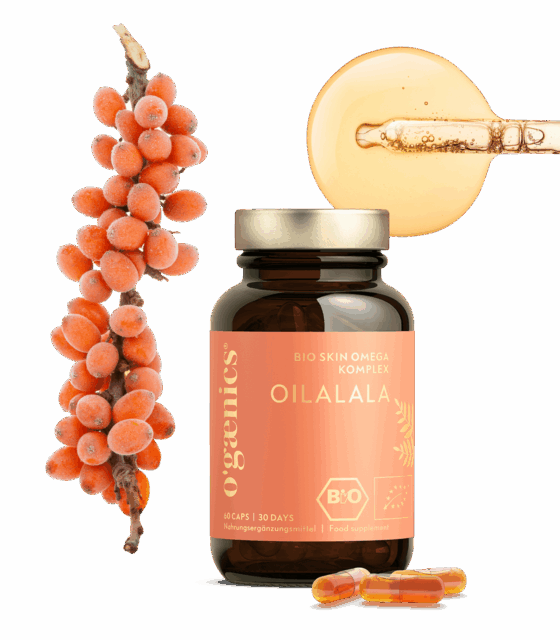
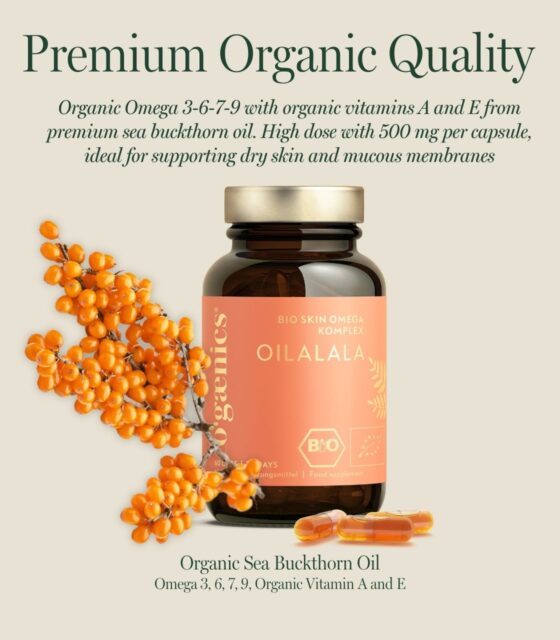
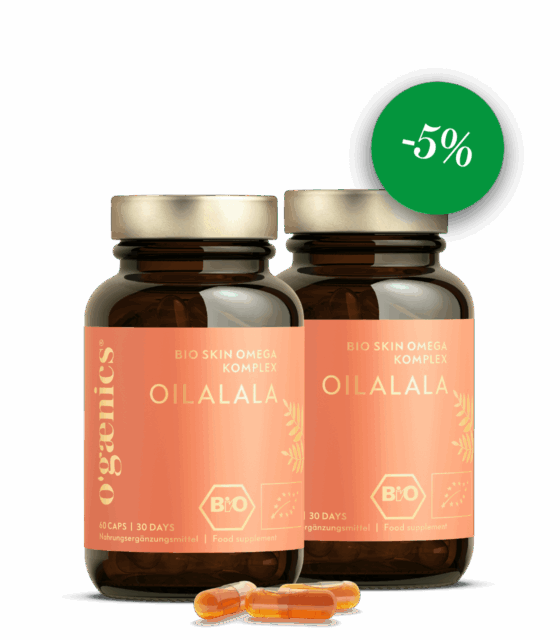
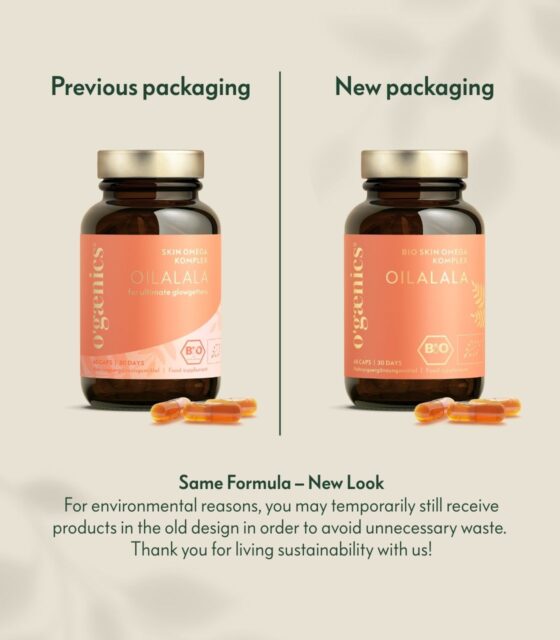

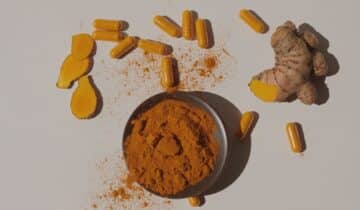

 No products in the cart.
No products in the cart.